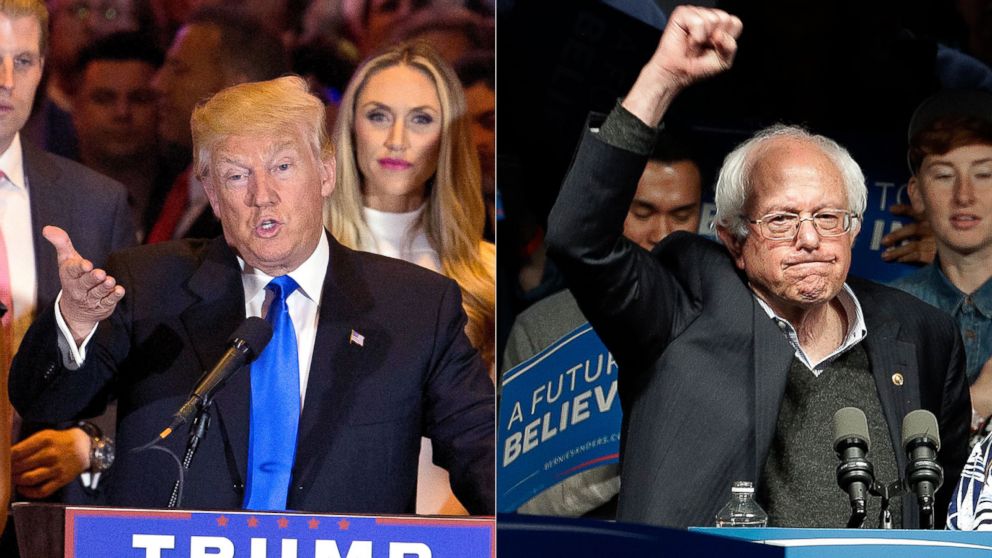Trump Shows Cruz the Door; Sanders Shows Clinton a Fight (EXIT POLL)
— -- Donald Trump relied on the underpinning of his presidential campaign – his strong appeal as a political outsider – to show Ted Cruz the door in their long battle, while Bernie Sanders showed Hillary Clinton that he’s still game for a fight.
Trump overcame a considerable gender gap and a sharply divided GOP electorate, with nearly half of those who didn’t support him in Indiana saying they wouldn’t vote for him in November, either. Still, six in 10 wanted the next president to be someone from “outside the political establishment,” close to its high this year, and Trump won nearly eight in 10 of their votes.
Trump also benefited from greater-than-average support for deporting undocumented immigrants, and – typically – majority interest in a candidate who’ll “bring needed change” or “tells it like it is.”
That said, a large gender gap appeared; in the first race since Trump accused Clinton of playing “the woman card,” he won women by 6 points, but men by 26 points – a Trump-Cruz gender gap second only to that in Michigan nearly a month ago. The typical gap is 9 points; here it was 20.
On the Democratic side, an influx of young, white liberals boosted Sanders over Clinton. Forty-six percent of voters were age 45 or younger, a new high this year (the previous record was 45 percent in Michigan, an unexpected Sanders win); a strong group for Sanders, he won them by 66-34 percent, nearly twice his usual margin among under 45s.
One factor was that whites, another better group for Sanders, accounted for nearly three-quarters of voters, compared with their typical six in 10 in previous races this year. And 68 percent of Democratic voters described themselves as liberals, compared with an average 62 percent this year. Still, regardless of Sanders’ win, 74 percent expected Clinton to be the ultimate nominee, and she led Sanders by 12 points in being seen as better able to beat Trump in November.
The Indiana exit poll results were analyzed for ABC News by Langer Research Associates. Details follow.
The Republican Race
Attributes that have driven Trump’s campaign resonated as well in Indiana as elsewhere. More than half of Republican voters said they wanted a candidate who can “bring needed change” (33 percent) or who “tells it like it is” (22 percent), and Trump won two-thirds and nearly nine in 10 of their votes, respectively. Cruz came back with voters focused on a candidate who shares their values – a persistent Trump weakness – winning two-thirds in this group; there just weren’t enough of them.
Trump, more narrowly, also won the relatively few voters who were focused on electability in November, defusing arguments by his critics within the party that he can’t prevail against the ultimate Democratic nominee.
Trump hasn’t won majority support for another of his issues – deporting undocumented immigrants – but it’s nevertheless drawn substantial support among GOP voters. Forty-five percent in Indiana said they favored deportation, compared with 41 percent in previous races on average; nearly two-thirds of them backed Trump.
Another big help for Trump, per usual, were the supporters he’d locked in a long time ago. Forty-six percent of Indiana’s GOP primary voters said they made up their minds more than a month ago, and they voted for Trump over Cruz by more than 2-1.




